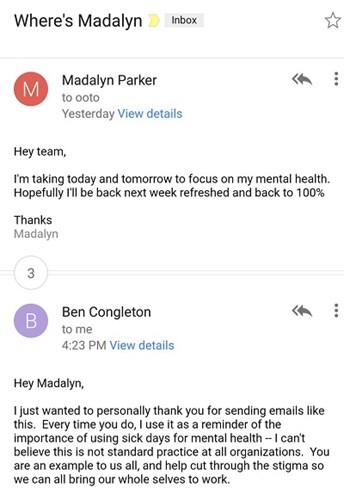“WE SHOULD NOT KID OURSELVES THAT PARITY BETWEEN MENTAL AND PHYSICAL HEALTH EXISTS. WE HAVE A LONG WAY TO GO”
Date: Friday 04 Aug 2017
Alastair Campbell Speaks out....
CEOs are tackling workplace anxiety – but not fast enough. Alastair Campbell pushes for reform
How would your boss react if you took a day off to deal with mental health? While some people flinch at the thought, one web developer took the plunge - and was rewarded with this response from her company's CEO.

While it's always good to hear attitudes around workplace are changing, let's not kid ourselves that parity between mental and physical health exist. Here, Alastair Campbell, mental health reform campaigner – and supporter of Men’s Health’s Mend The Gap Campaign – explains why the need for reform is now more urgent than ever.
It is there in the NHS Constitution: parity. One as important as the other. But we are light years away from that, in terms of attitudes, resources, and services.
Take one small but revealing example. David Cameron spoke early last year about how proud he was that we now have waiting times for some mental illnesses, as we do physical ones. So, if you have psychosis, you should be treated within two weeks.
I have had psychosis. I have known that feeling of the mind exploding in a chaotic mess of noise, confusion, and fear. I was lucky. Lucky to be arrested for my own safety. Lucky to have a police doctor who insisted I went to the hospital. Lucky to have a boss who took me back in my old job.
But as I heard the then Prime Minister say those words, I tried to work out: what was the physical health equivalent of a full-on psychotic attack? What I concluded was that it would be a body flying through a windscreen and left lying at the roadside. Just imagine what we would think if the waiting time for that was a couple of weeks.
This is not just about money. It is about the way we think. Here the media has a huge role to play, which is why the focus MH is putting on mental health is important. One of the reasons mental health has lagged behind is the huge taboo that has surrounded mental illness for centuries. Do you know where the phrase ‘round the bend’ comes from? It is where we used to build the mental asylums, in places where others did not have to see them. Round the bend at the end of a road; out of sight, out of mind.
Taboo can have an enormous impact, well beyond the obvious one of adding to the shame and stigma people feel. It can affect spending, too. Older readers will remember when cancer was known as ‘the big C’. Why? Because people didn’t want to talk about cancer. Today people don’t want to talk about mental health. But the taboo having been broken down, awareness of cancer, openness, and as a result better funding, have made a huge positive impact.
Campaigns need killer facts. Let me give you the worst fact of all: suicide is the biggest killer of young men in our country, and has remained so for some time now. If you deleted the word ‘suicide’ and replaced it with any other cause of death – cancer, diabetes, asthma, car crashes – there would be an outcry. Governments would have to do more.
Is it because we still prefer not to think too much about mental health and mental illness that we allow this to go on? We should be more outraged than we are, not just at that killer fact but at the reality it represents – services being cut, pain and suffering going unaddressed. I hope that in taking up the cause of male mental health, Men’s Health plays a big part in shaping the attitudes required for a desperately needed new approach. Change only comes if people make it come. And we all have a role in that.

